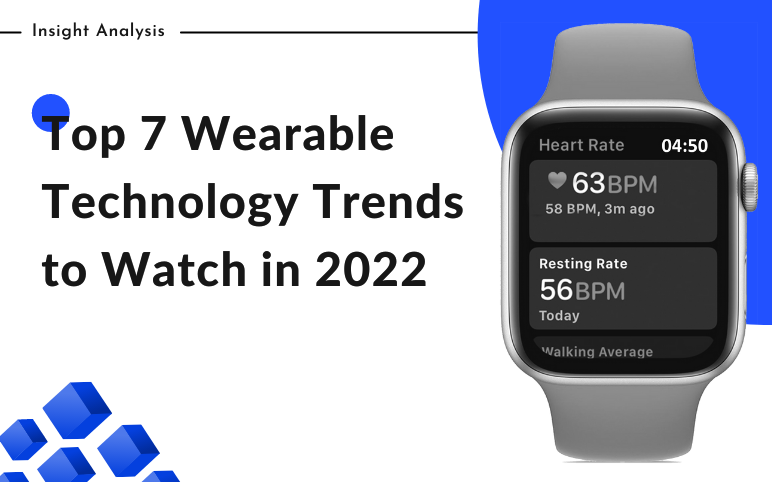Table of Contents
Over the past few years, technology has led to the development of many innovative and effective fitness gadgets that have significantly improved the quality of lives. Whether to lose weight or to keep track of the sleep pattern, the fitness tracker or bands are one such category of products that has generated a massive demand from the consumer side to monitor their health and fitness.
Fitness trackers or wearables are electronic devices worn on the body to track and measure daily activities such as step counts, sleep duration, heart rate, calorie burn and many others. These devices are easy to use and are even recommended by healthcare professionals to their patients. From high-intensity exercise to just a casual walk, from running a marathon to sleep-tracking, these devices measure all vital body stats that help the user to understand its health better.
How accurate is a fitness tracker?
Wrapped around the wrist or ankle, the fitness tracker can measure various body stats. Studies have found that the trackers show nearly accurate measurements for some of the essential stats, such as heart rate with just over 5 percent of fluctuations. However, for some other stats, such as calorie counting, the data accuracy is relatively less as it depends upon various factors such as age, body type, height, weight, fitness level, gender and many others. Today, the fitness tracker nearly provides accurate results for most of the vitals signs; however, in the coming years, these devices will likely provide more reliable measurement with the improvement in technology.
What are the best fitness trackers in the market?
The fitness tracker is becoming an indispensable part of life. The people from younger generations, gym-goers, and working people embrace them in their daily life activities. Slowly the people from the older generation are also adopting these devices to remain physically active. Today, several types of fitness trackers are available in the market depending upon the person’s physical activities and exercise intensity. These trackers come in various shapes, sizes, and specifications. The tracker with a feature like vibrant display, high battery life, GPS tracking, waterproof, comfortable design are considered the best devices. But the devices with all these features cost higher. At present, the global fitness tracker market is dominated by key companies with cheaper prices such as Xiaomi and Fitbit. Apart from these Jawbone, Huami, Garmin, Coros Apex, Apple and Nike are some other key players in the market with high-end fitness trackers.
How fitness trackers can improve your health
The fitness tracker is a great tool to achieve good health. The tracker motivates users to follow the strict diet plan and the exercise routine. It records the person’s activity and provides essential data that encourages him to achieve the desired goal. Today, these trackers can easily synchronise with the smartphone application, and the user can compare his result with another person. Similarly, it is easier to share real-time data with a personal trainer or physician.
What information do fitness trackers can provide?
Fitness trackers are like mini-computers that calculate a wide range of stats by measuring motion. The trackers use an accelerometer (to track movement) and a gyroscope (to measure orientation and rotation). Similarly, it uses a GPS receiver to track the running, walking, and cycling terrains to calculate the elevation and distance covered. The tracks are also equipped with optical sensors to measure pulse. The sensor can also measure the quality of sleep according to the wrist movements. Blood pressure, temperature, calorie burned, and blood oxygen (SpO2) are some other essential information that the trackers can provide to the user according to the data collected.
What are the pros or cons of fitness trackers?
To achieve good health and fitness is the user’s main aim that motivates him/her to use the trackers. The fitness tracker can help to understand if the person is achieving the desired goal for each day, week or month. It gives an overview of overall health over a period of time and assists in figuring out if there is any progress or not. Similarly, it helps to understand the effectiveness of the training. On the scientific research front, the tracker helps to conduct studies on many people simultaneously, which is impossible in the laboratory. In the coming years, the widespread use of trackers may aid in clinical studies and can provide vital health information.
Despite several positive advantages, the trackers have some negative aspects also associated with them. The cost of the device is the main disadvantage. As of now, the most accurate and reliable trackers cost quite high. The cheaper trackers are observed not to provide accurate results. They overestimate the essential stats such as step counts, calorie burn and heart rate etc. Similarly, the user gets demotivated if he is unable to achieve the desired fitness goals. The inaccurate result, scope for error, inconsistency, data privacy, and busy schedule are reasons why many people abandon the fitness tracker. It is also observed that over a period of time people often become obsessed with numbers rather than exercise, which is one of the major disadvantages of these devices,
What is the future of fitness trackers?
Fitness trackers are getting more advanced and sophisticated with each passing day. The companies in the fitness tracker market are launching new products with additional features and applications. In the coming year, the awareness towards fitness, increasing incidences of diseases, and the growing geriatric population will generate the trackers’ demand. The emerging trend in technology such as the Internet of Things (IoT) and improvement in UI, software technology will also drive the growth of the fitness trackers market. However, the pricing, accuracy and privacy associated with the tracker’s use will remain critical issues to address for the widespread adoption.









-Agonist.png)


